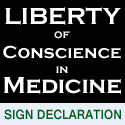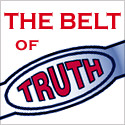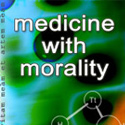Moral Injury. An introduction.
Moral Injury. An introduction.
Moral injury is an event that violates deeply held moral beliefs or values. It can cause a profound psychological distress that results from actions, or lack of them, which deeply impacts one’s moral code (Williamson, Murphy and Greenberg, 2020). It may be something I have done, deeply personal and not necessarily known to any person other than myself. It may be something I have done that involves others, even without them ever knowing. It may be something that has been done to me or I have witnessed done to others. It may be something that I have been compelled or obliged to do by others with the power to enforce it, or because they did not support me as they ought. It may at times simply be the “failure” or not have the capacity and time to give assistance or care when such was necessary. It is more than “just” a traumatic event. It is also something more than “just” guilt although this may also have to be dealt with. Even when the event involves no actual physical describable trauma, it is still a violation and it needs to be recognised as such as part of recovery.
Recognising/acknowledging the reality/truth of what happened, that it was more than just a traumatic or tragic event, that it ran in opposition to deeply held morals, that it was the result of a deliberate, non-accidental, course of action that was in conflict with those morals – even if it seemed there was no other course of action when it might have been the lesser of two evils – it still requires defining for recovery to occur.
Recognition of the difference between this distress and other traumatic events. Recognising the “normality” of the particular distress. “Oh! So that’s why I feel so bad.” “Oh, that’s such a relief.”.
And that might be all that is needed for spontaneous – even if guided – recovery to occur. For others recovery may be protracted and intense and the following may be helpful
- What happened? Tell me the story. How did it come about? This is what I remember.
- Why? Further detail re circumstances. Was it preventable? Might it have happened differently?
- If only’s
- Anger (at significant others, those in authority, doctor, hospital, self, God)
- Resentments & Appreciations (were there any?)
- Unfinished business
- Guilt
- Mourning/crying/grieving/agony/lament.
- May take many years. Including to ongoing relationships and privileges.
- Letting go e.g. as per the Serenity Prayer
- Hello to the future (to relationships at a different level; to new relationships; to wholeness and freedom)
- Forgiveness of others and self (if necessary and as appropriate; is incomplete until we have acknowledged wrong and felt appropriate agony and anger and anguish and grief)
The above may be expressed as a diary entry to self or God, or a letter to God, or to parents, spouse, deceased, significant others – or just a written record.
Feelings are to be felt rather than analysed, and not judged according to rightness or wrongness. Mixtures of feelings all at the one time are OK.
“Staging” is artificial. We can move back and forth through the whole spectrum and this is also OK
The use of the empty chair technique may be helpful in some of these categories
Lachlan Dunjey 22 Sept, 2020.
See Luke’s Journal Vol.26 No.1 February 2021 Moral Injury Conference https://lukesjournalcmdfa.com/feb-2021-fire-in-the-belly-2021/






